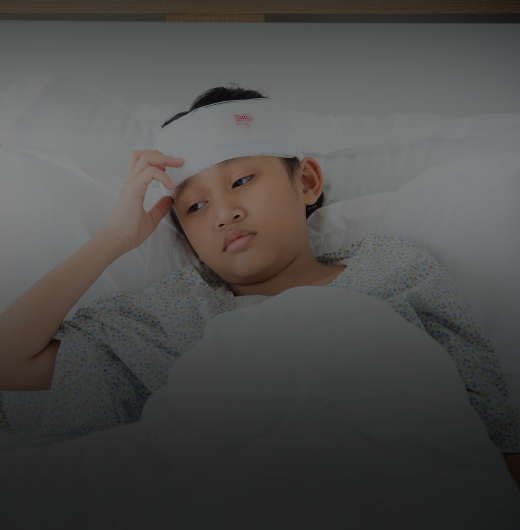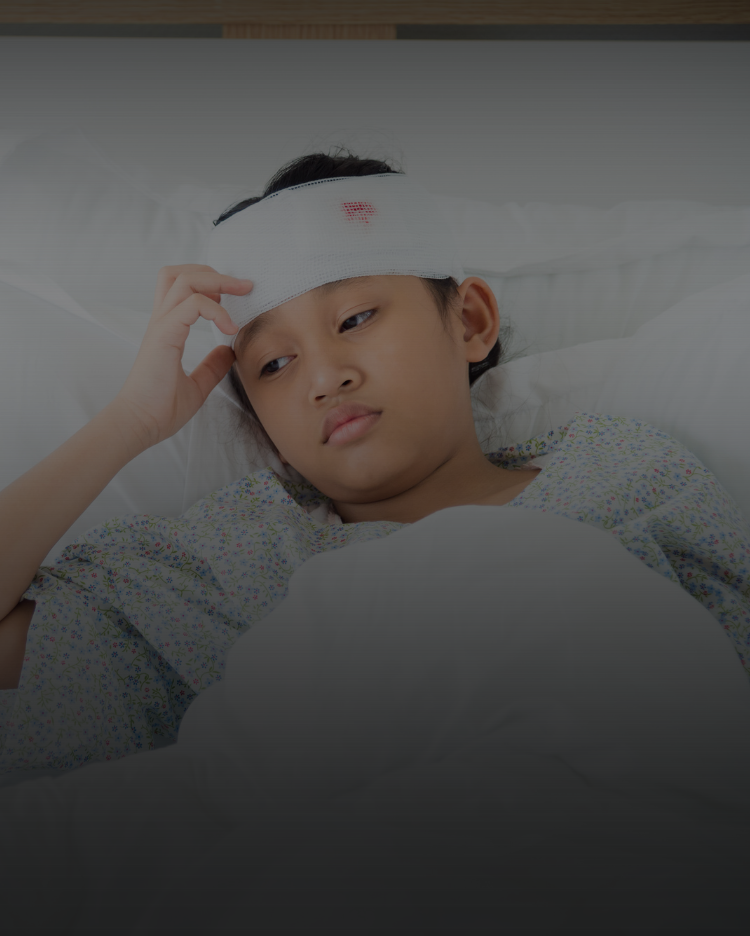The common signs include headaches, nausea, dizziness, memory issues, mood swings, and difficulty concentrating. Immediate medical attention is crucial to avoid long-term complications.
Brain injuries in children are often overlooked, leading to long-term consequences. A Hamilton Brain Injury Lawyer can help parents understand the signs and secure compensation for recovery.
Brain Injury in Children: Signs Parents Should Never Ignore
Brain injuries in children are unfortunately more common than many parents might think. Accidents, falls, or motor vehicle accidents can cause serious head injuries that may go undetected until they cause lasting damage. A Hamilton brain injury lawyer works with families every day who find themselves in difficult situations after a child’s brain injury. From mild traumatic brain injuries (mild brain injury) to more severe, catastrophic injuries, brain trauma can have life-altering effects on a child’s development and quality of life. Recognizing the symptoms early and understanding the legal rights you have as an injured victim are essential to securing fair compensation. This blog will discuss the common signs of brain injuries in children, the steps you should take if you suspect an injury, and how experienced lawyers can help you navigate the process of seeking compensation.
Types of Brain Injuries in Children
Children can experience a wide range of brain injuries, and understanding these injuries is critical to addressing them properly. Whether the injury is mild or serious, timely medical care and legal action can significantly impact recovery and the outcome of any potential personal injury claim.
Mild Traumatic Brain Injury (Concussion)
Mild brain injury, or a concussion, is one of the most common types of brain injuries children experience. Often caused by falls, sports injuries, or even car accidents, concussions may not appear severe at first but can have serious consequences if not properly treated. A child who suffers a concussion may feel fine initially but could develop lasting symptoms later on. Early intervention is critical.
Common Causes of Mild Brain Injury Include:
- Car accidents
- Pedestrian accidents
- Sports injuries
- Accidental falls
Parents should be cautious and seek medical advice even if symptoms appear mild initially. Ignoring these early signs can lead to worsened outcomes, including long-term health problems and spinal cord injuries in more severe cases.
Severe Traumatic Brain Injury
Severe brain injuries are usually the result of serious accidents, such as motor vehicle accidents or physical assaults. These types of injuries can be catastrophic, leading to permanent cognitive or physical impairments that affect a child’s ability to function daily. A severe brain injury may require extensive medical care and ongoing rehabilitation to manage the effects.
Causes of Severe Brain Injury Include:
- Serious motor vehicle accidents
- Motorcycle accidents
- Physical assaults
- Serious falls or accidents from heights
Severe brain injuries often require long-term disability benefits, and families may face significant medical bills as the recovery process unfolds.
Recognizing the Signs of Brain Injury in Children
The signs of a brain injury can sometimes be subtle. Parents must watch for changes in their child’s physical health, behavior, or emotional state after an accident. Early diagnosis can help prevent complications down the road, ensuring proper treatment and rehabilitation.
Physical Symptoms of Brain Injury
After an injury to the head, it’s important to watch for these common symptoms of brain injury:
- Headaches: Persistent or severe headaches, especially after a fall or bump to the head, are often indicative of brain trauma.
- Nausea or Vomiting: If vomiting occurs after an injury, it could be a sign that the brain is under pressure, requiring immediate medical evaluation.
- Dizziness and Balance Issues: Children who suddenly have trouble walking, standing, or balancing may be experiencing the effects of head trauma.
- Fatigue or Sleep Disturbances: Unusual tiredness or trouble sleeping may indicate that the brain is not functioning as it should.
- Sensitivity to Light or Noise: Increased sensitivity to light or noise is a common symptom following a concussion or brain injury.
Cognitive and Behavioral Changes
A brain injury can also affect a child’s cognitive abilities and behavior. If your child starts showing any of the following symptoms, it’s time to seek medical help:
- Memory Issues: Trouble remembering things or focusing on tasks is often associated with brain injuries.
- Mood Swings or Irritability: Unexplained changes in mood or heightened irritability can result from head injuries.
- Difficulty Concentrating: If your child is suddenly more distracted or has trouble focusing, it could be a sign of a brain injury.
- Confusion or Disorientation: A child who seems confused, forgetful, or unable to recognize familiar people may be suffering from a brain injury.
Emotional and Psychological Symptoms
Brain injuries don’t just affect physical abilities; they can also lead to emotional changes:
- Post-Traumatic Stress Disorder (PTSD): Children may develop PTSD after a significant accident, leading to anxiety, nightmares, and emotional withdrawal.
- Depression or Anxiety: Injuries can cause emotional stress, sometimes leading to depression or heightened anxiety in children.
- Behavioral Regression: After a brain injury, some children may revert to earlier behaviors, such as bed-wetting or becoming more clingy than usual.

Get Legal Support for Your Child’s Injury
Contact Us Today
What to Do if You Suspect a Brain Injury
If you suspect your child has sustained a brain injury, immediate medical attention is essential. The earlier a brain injury is diagnosed, the better the chances for recovery and the less likely the injury will result in long-term disabilities.
Steps to Take After a Brain Injury
- Seek Immediate Medical Evaluation: Even if the injury seems minor, it’s crucial to have your child evaluated by a healthcare provider. A Hamilton brain injury lawyer can help you understand your legal rights while you focus on medical treatment.
- Track Symptoms and Behavior: Keep detailed records of your child’s symptoms and any changes in their behavior. This documentation can be helpful if you decide to file a personal injury lawsuit later.
- Follow Medical Recommendations: Rest is often critical in the recovery process, especially for mild brain injuries. Ensure your child follows their doctor’s advice carefully.
Legal Support for Families Affected by Brain Injuries
If your child’s injury was caused by someone else’s negligence, whether from a car accident, fall, or physical assault, you may be entitled to compensation. Working with an experienced personal injury lawyers can help you understand your options and pursue fair compensation for medical expenses, rehabilitation, and other costs associated with recovery.
The Role of Personal Injury Lawyers
An experienced lawyer can help you navigate the legal aspects of brain injury cases, which can be complex. Here’s how a personal injury law firm can support you:
- Legal Team Assistance: Your legal team will help assess the details of the personal injury case, working closely with medical professionals to fully understand the impact of the injury.
- Dealing with Insurance Companies: Insurance companies often try to minimize accident benefits to a brain injury victim. An injury lawyer can help ensure you get the compensation you deserve for your child’s medical bills and treatment.
- Filing an Injury Claim: A personal injury claim can help recover compensation for medical expenses, lost wages, therapy costs, and emotional distress related to the injury.
- Seeking Compensation for Emotional Trauma: Brain injuries often result in significant emotional distress. A traumatic brain injury lawyer can help secure compensation for the mental health care needed, including therapy or counseling for your child.
The Importance of Medical Experts
In serious personal injuries including brain injury cases, an expert medical testimony is often required. Medical records and reports from specialists can provide crucial evidence to support your injury claim. A lawyer can help connect you with medical experts who can testify about the severity of your child’s brain injury, its long-term effects, and the medical treatments required.
The Financial Impact of a Brain Injury
The financial costs of brain injuries can be overwhelming. From immediate medical treatment to long-term rehabilitation, the costs can quickly add up. If your child’s injury was the result of someone else’s negligence, it’s important to pursue compensation for:
- Medical Treatment: Hospital visits, diagnostic tests, rehabilitation therapies, and ongoing care can result in significant medical bills. Brain injury lawyers will help ensure that your child’s treatment costs are covered.
- Long-Term Disability Benefits: In some cases, a brain injury can lead to permanent disability, which may require long term disability benefits for ongoing care and support.
- Lost Income: If your child’s injury impacts your ability to work, you may be entitled to compensation for lost wages and expenses related to caregiving.
- Emotional and Psychological Support: Emotional distress, including PTSD or depression, is common after brain injuries. Your claim can cover counseling or therapy for both your child and family members.
I highly recommend Matt Lalande as your lawyer. After a life-altering motorcycle accident left me, a single mother, unable to work, Matt and his team exceeded my expectations by settling my case in just 2.5 years, providing exceptional support and guidance throughout the process. – Heather Bond
If your Child has Been Hurt, Our Hamilton Child Injury Lawyers can help. We Help Hurt Kids all over Ontario.
Brain injuries can lead to ongoing treatment needs. our child injury lawyers can assist you in obtaining compensation to cover the cost of long-term care, rehabilitation, and spinal cord injuries if necessary. An experienced personal injury lawyer will work with medical professionals to assess the need for future treatments and help secure the appropriate benefits.
If your child has suffered a brain injury, it’s important to recognize the symptoms early and seek immediate medical attention. A Hamilton brain injury lawyer can help guide you through the process of obtaining compensation, ensuring your child receives the treatment they need and you are not burdened with the financial strain of the injury.
Whether your child is dealing with a mild brain injury or a catastrophic injury, working with personal injury lawyers can help secure the legal support and compensation required for their recovery. Personal injury law provides the tools to hold negligent parties accountable and ensure that injured victims get the support they need to heal and move forward.
At Lalande Personal Injury Lawyers, we offer free consultations to help you understand your legal rights and the litigation outcomes you can expect. With our experience and compassion, we are dedicated to helping accident victims recover from the devastating consequences of serious injuries, ensuring that families receive the justice they deserve.
Call us today no matter where you are in Ontario at 905-333-8888 or alternatively, fill out a confidential contact form and we would be happy to explain your rights to you without cost – or obligation.
Article FAQ
A Hamilton Brain Injury Lawyer can assess the severity of the injury, negotiate with insurance companies, and guide you through the legal process to secure fair compensation for medical bills and rehabilitation.
Yes, depending on the severity, brain injuries can lead to long-term disabilities. Long-term disability benefits may be available to cover ongoing care, medical treatments, and lost wages.
Parents have the right to pursue compensation for medical expenses, emotional stress, and other damages resulting from the injury. An experienced lawyer can help enforce those rights.
The length of time to settle a brain injury lawsuit varies based on case complexity, negotiations, and litigation. Experienced lawyers can give you an estimate after reviewing your case.


